Rock Paper Scissors in France
The far right is down but not out in Paris.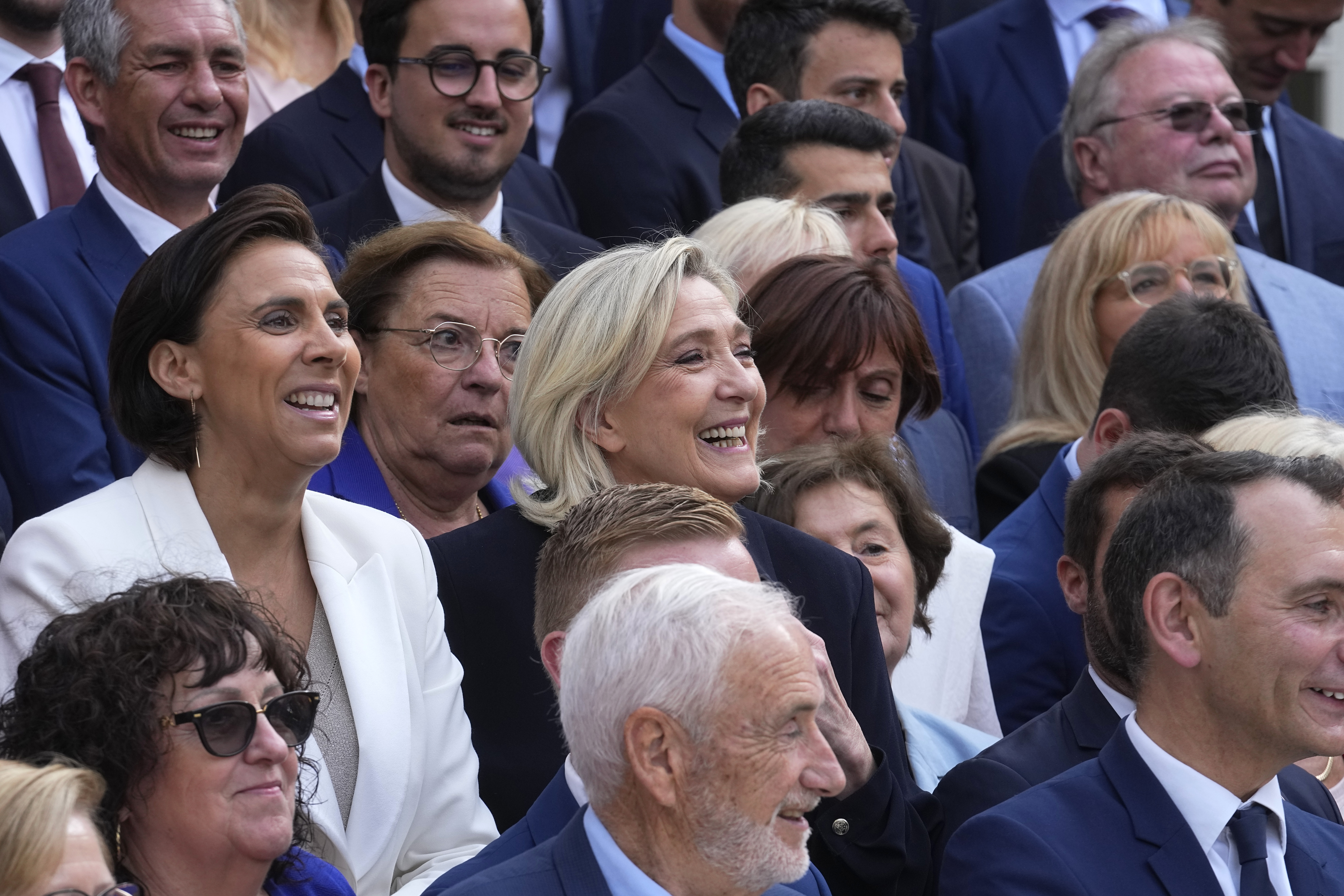 French far-right leader Marine Le Pen, center, poses with newly elected parliament members of the National Rally party in Paris on July 10, 2024. (AP Photo/Michel Euler)
French far-right leader Marine Le Pen, center, poses with newly elected parliament members of the National Rally party in Paris on July 10, 2024. (AP Photo/Michel Euler)
By Tuesday, two days after the second and final round of the French parliamentary elections on July 7, the shock results were no longer the lead story on the TV news, having been pushed aside by France making it to the semifinals of the Euros soccer competition, the Tour de France cycle race and the upcoming Olympics.
After a tense week following the first round — when it appeared that Marine Le Pen’s National Rally might win — it turned out that, as usual, everyone else had successfully ganged up on them to prevent that from happening. And then, not for the first time, the public lost interest.
The price this time was victory for an instant coalition of left-leaning parties, and President Emmanuel Macron now has the delicate task of preventing them from taking power, too.
The immediate question is: Who should be prime minister? Macron’s current PM, 35-year-old boy wonder Gabriel Attal, dutifully resigned the day after the election; Macron then just as dutifully refused to accept his resignation, supposedly for the good of the country. The largest party in the new Assembly is in fact the National Rally, with an even younger candidate, Jordan Bardella, 28, but even though his party got 3 million more votes than its closest rival, the newly created New Popular Front, it came in third in terms of seats, so attention is focused on the largest party in the left-wing coalition, France Unbowed, whose leader, Jean-Luc Mélenchon, would like to be president but will take prime minister.
There are two problems with Mélenchon’s ambitions. One is a 73 percent disapproval rating that makes him even more unpopular with voters than Macron or Le Pen. Many consider him a Trotskyist lunatic. The other problem is that the three-way split between left, right and fascist lite leaves no way for any of the three blocs to form a parliamentary majority. But nobody dares to suggest re-running the election, in case the National Rally wins.
The price this time was victory for an instant coalition of left-leaning parties.
Initially, the New Popular Front announced that it was going to have a big meeting and come up with a compromise candidate. Instead, five candidates from the parties making up the temporary coalition came forward, none of whom could command a majority, but all seemingly convinced that theirs is the only solution.
The joker in the pack seems to be the Republicans, LR in French, a smaller right-wing party that had supported Macron until it looked as if the National Rally might win. Then, with no explanation, they changed sides. Now that the National Rally has lost, they offer to change sides again and support the ‘Presidential Majority’, which is now a minority grouping. This, they claim, would make Macron’s group larger than the New Popular Front, but would still not provide a working majority. They call this amazingly hypocritical solution a ‘technical agreement.’
So what is it, exactly, they disagree about? What drives all these very similar-seeming political parties apart from opposition to the National Rally?
There are some normal political issues. The left wants to cancel Macron’s pension reforms, and Le Pen wants a MAGA-style France First policy. But the real issue is much simpler. The code word is ‘immigration’, but it’s not ‘new’ immigration that is the problem for many voters. It is the 6 million Muslims, mostly French-born and French-educated, who are already there, many of them the grandchildren of legal immigrants from France’s former colonies.
France is officially colorblind and neutral when it comes to religion, but the right has exploited the failure to integrate the North Africans into the French system as if it were an open wound. When Bardella offered a ‘War on Islamism,’ it was a very popular idea.
Muslim leaders understandably didn’t share this enthusiasm, and the Grand Mosque of France in Paris, the Council of Mosques of Lyon and most mainstream Muslim public figures have all called upon French Muslims to join in the ‘barrage’ against the National Rally, meaning that they should vote left, right or Green as necessary, abandoning any pretense at political preferences in order to help the Establishment resist a fascist takeover.
It is not at all clear that this worked. There are no figures available yet for these elections, but in the European elections that provoked Macron to call the snap poll, only about 40 percent of eligible Muslims voted. Of those, the most popular party was France Unbowed, and it seems that was largely in response to Mélenchon’s pro-Palestinian position.
There is, however, another factor, one that is affecting politics in other countries too: TikTok.
The right has exploited the failure to integrate the North Africans into the French system as if it were an open wound.
Facebook, YouTube, Instagram — politicians have to do their best with all these platforms, but if you want to reach the youth, it’s TikTok that rules the roost. That is why both Macron and Le Pen have acquired young, clean-cut front men. Bardella, in particular, has succeeded in acquiring a teenybopper following. But the most powerful force in the TikTok political universe is fundamentalist Islam.
After a string of terrorist attacks, the French state decided to prevent fundamentalist clergy from taking influential positions — and so the official leaders of Muslim opinion duly follow the government line. But there is nothing to stop anyone from setting up as a TikTok preacher, and there are French-language Salafist TikTok influencers without any official backing but with millions of hits on their video posts. Their message for the elections is a simple one. Voting is haram, forbidden by Islam, and democracy is an evil heresy.
How does all this play out?
In the short run, in spite of a rough week during the actual voting period, Macron’s gamble seems to have paid off. He is still there, his young protégé is still prime minister, and in a couple of weeks it will all be forgotten as the Olympics circus begins. At the moment it looks impossible for anyone to win the game of rock paper scissors. But time will tell.
In the long term, the logic of confronting the ever-growing and increasingly militant Muslim population hasn’t gone away. That is mainly why people vote for the National Rally, and more fundamentalist Islam means more votes for the extreme right. As Le Pen said in her speech after failing yet again to outwit the establishment in the elections, “The tide is rising. It didn’t rise high enough this time, but it continues to rise, and consequently, our victory has only been delayed.”
Your support is crucial...As we navigate an uncertain 2025, with a new administration questioning press freedoms, the risks are clear: our ability to report freely is under threat.
Your tax-deductible donation enables us to dig deeper, delivering fearless investigative reporting and analysis that exposes the reality beneath the headlines — without compromise.
Now is the time to take action. Stand with our courageous journalists. Donate today to protect a free press, uphold democracy and uncover the stories that need to be told.
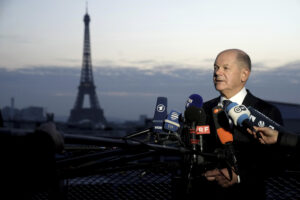
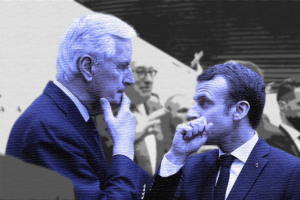

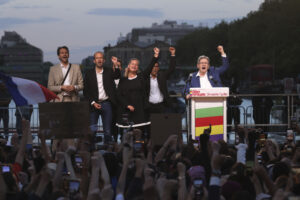

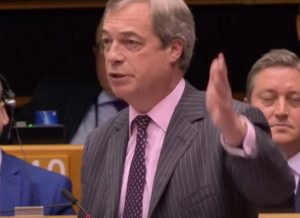
You need to be a supporter to comment.
There are currently no responses to this article.
Be the first to respond.